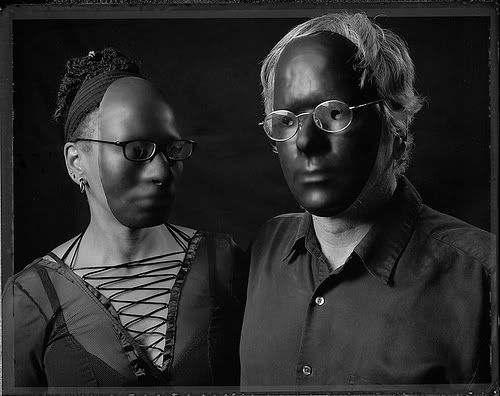If only we could take Intelligent Design seriously
An excerpt from something I posted in a mailing-list discussion of the Judge Jones's ruling on Intelligent Design in the Dover Panda Trial:
The problem with ID is that the ID movement presents it as a fairly mature and corroborated hypothesis, even a major theory, which it isn't. Worse, they are pretty clearly not going to let educators seriously explore that hypothesis scientifically. They have zero interest in that, and they're actually quite opposed to it.
If you did, you could and would scientifically disprove their notion of God. The Christian god is a scientific impossibility.
So their strategy is to push back the arbitrary boundary of what's "scientific" to include the core hypothesis of intelligent design, but to draw a line just the other side of that, so that you can't really critique the idea. That is exempt from scientific scrutiny, because it's magic, and science can't go there.
And that's cheating. The problem is not that the core idea of intelligent design is intrinsically unscientific. It's that if you're going to accept it as a scientific hypothesis, you can't exempt the alleged designer from rational scrutiny. People actually have explored some ID hypotheses scientifically (like directed panspermia) and they haven't gotten much traction for pretty good scientific reasons. Not because they're unscientific hypotheses, but because they're not the best available explanations. The ID movement wants to force ID into science, by an end run through education, and that's not how real science or education work.
If it weren't all about political feasibility and huge democratic pressures, I'd say, "make my day!" Let's bring intelligent design into biology, and take the vague theory and refine it into mutually exclusive families of clearer hypotheses. Each of which we analyze for explanatory power, corroborating and disconfirming evidence, and so on.
And in the process, we will show that the Christian concept of God is scientifically false---we can say with a fair degree of scientific confidence that there is no god much like the God they want.
But of course, that will never happen. They'd accuse us of violating their boundary between "science" and "religion," and taking a "religious" stance. (Well, anti-religious, and in a sense they'd be right on that.) If we said the truth, which is that scientists know orthodox Christianity to be scientifically false, we'd be lynched.
The problem with ID is that the ID movement presents it as a fairly mature and corroborated hypothesis, even a major theory, which it isn't. Worse, they are pretty clearly not going to let educators seriously explore that hypothesis scientifically. They have zero interest in that, and they're actually quite opposed to it.
If you did, you could and would scientifically disprove their notion of God. The Christian god is a scientific impossibility.
So their strategy is to push back the arbitrary boundary of what's "scientific" to include the core hypothesis of intelligent design, but to draw a line just the other side of that, so that you can't really critique the idea. That is exempt from scientific scrutiny, because it's magic, and science can't go there.
And that's cheating. The problem is not that the core idea of intelligent design is intrinsically unscientific. It's that if you're going to accept it as a scientific hypothesis, you can't exempt the alleged designer from rational scrutiny. People actually have explored some ID hypotheses scientifically (like directed panspermia) and they haven't gotten much traction for pretty good scientific reasons. Not because they're unscientific hypotheses, but because they're not the best available explanations. The ID movement wants to force ID into science, by an end run through education, and that's not how real science or education work.
If it weren't all about political feasibility and huge democratic pressures, I'd say, "make my day!" Let's bring intelligent design into biology, and take the vague theory and refine it into mutually exclusive families of clearer hypotheses. Each of which we analyze for explanatory power, corroborating and disconfirming evidence, and so on.
And in the process, we will show that the Christian concept of God is scientifically false---we can say with a fair degree of scientific confidence that there is no god much like the God they want.
But of course, that will never happen. They'd accuse us of violating their boundary between "science" and "religion," and taking a "religious" stance. (Well, anti-religious, and in a sense they'd be right on that.) If we said the truth, which is that scientists know orthodox Christianity to be scientifically false, we'd be lynched.

